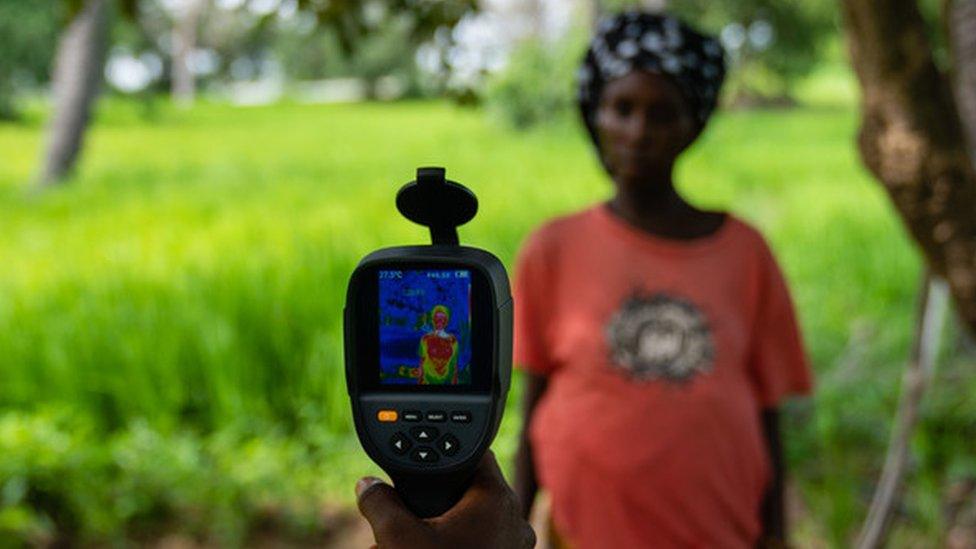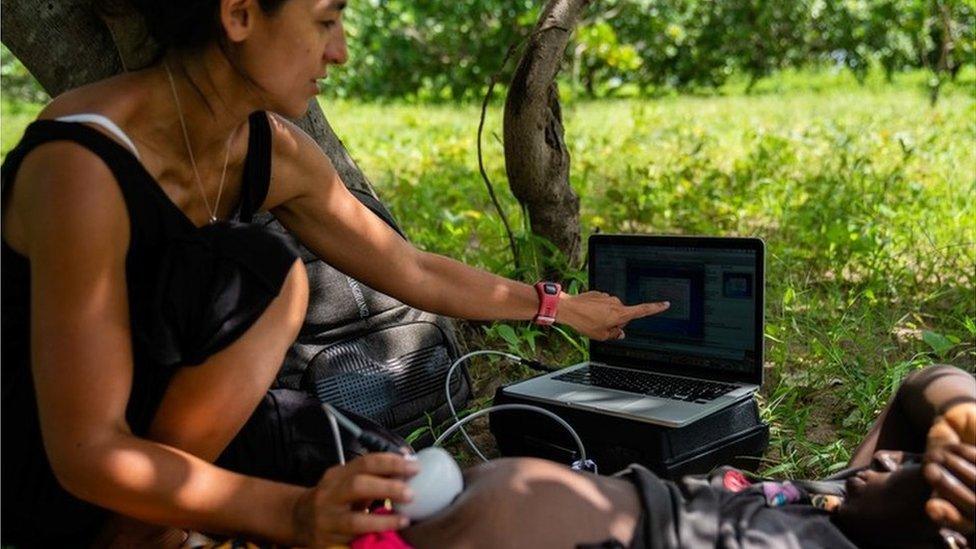Working in extreme heat puts strain on foetus
- Published

Researchers monitor the effect of extreme heat on pregnant farmers
Heat stress can affect the foetuses of women working in extreme temperatures, according to new research.
The effects include raised foetal heart rate and slower blood flow through the umbilical cord.
Researchers say more effective interventions will be needed to protect pregnant women as climate change sees temperatures increase worldwide.
The study, from the London School of Hygiene and Tropical Medicine (LSHTM), looked at 92 farmers in The Gambia.
The research, published in The Lancet Planetary Health,, external suggests that for every extra degree Celsius in extreme heat stress, there was a 17% increase in foetal strain.
Although other studies have examined the impact of heat on pregnant women in lab-based conditions in advanced economies, this is thought to be the first study which looks at the effects in real-world settings in the developing world.
The pregnant women were working in rice fields in West Kiang, The Gambia. They were farming in direct sun for between two and eight hours.
The highest air temperature recorded during the study was 45C but during the rainy season high humidity could often make it feel hotter. The women were scanned using a portable ultrasound devices to record the foetal heart rate of their unborn babies. Readings were taken at the start of their shift, in the middle of it and again at the end of the working day.
The expectant mothers were also monitored for their own symptoms of heat strain such as headaches, weakness and nausea.

Dr Ana Bonell scanning one of the pregnant women in the study
Dr Ana Bonell, the lead researcher at LSHTM, said evidence of foetal strain was found in 33% of the field visits.
"We were extremely shocked to find that the foetuses were being affected by the heat stress exposure," she said.
"In the unborn child, we saw that the heart rate increased to dangerous levels that would be worrying in a clinical setting. We also found an impact on the foetal blood flow because the placenta was being impacted by the heat."
She said there were global implications because of climate change.
"This really matters in terms of ensuring that globally women are able to have a safe pregnancy. It's only going to get hotter and we know that if women are exposed to high temperatures, this has very severe impacts on birth outcomes such as pre-term births and stillbirths.
"We hope that this research will lead to a clearer understanding of what some of the mechanisms are behind those findings, and help to develop interventions that will reduce the effect of this extreme heat."
Dr Bonell said further research was needed to examine in more detail how extreme heat could affect the diversion of blood from the foetus, as well as the way inflammation markers released by the mother might affect how the foetus develops.